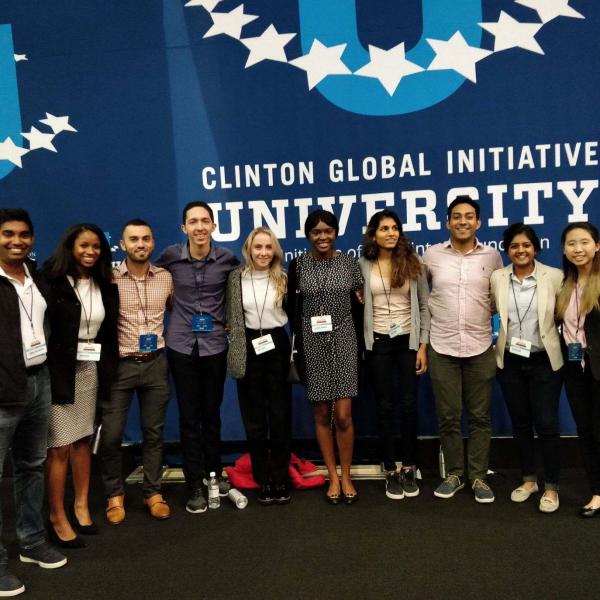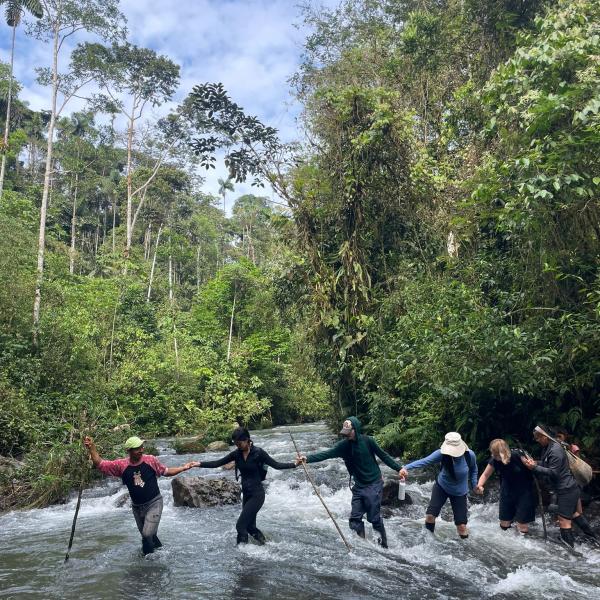Overview
Not all programs open in the second round of applications
Learn more about the application process and deadlines for each round of applications.
Experience South Africa's rich biological and cultural diversity on a field-based program in Kruger National Park.
What is unique about this program?
Study South African Ecosystems and Diversity; Field Research Methods in Ecology; Conservation and Management of Protected Areas in South Africa; and South Africa: Special Topics in History. Most semesters, local students participate on the program.
Live alongside OTS faculty and distinguished visiting scientists and conservation practitioners who teach science-based courses. The Skukuza Science Leadership Initiative hosts a new sustainability built, research, education, and training facility alongside the staff village for the park where the park's researchers and veterinarians live.
Learn from prominent South African historians, artists, and cultural theorists will lead the course on History and Culture of South Africa.
Conduct multiple short field-based research initiatives emphasizing the scientific method in various South African ecosystems. Starting with a workshop on scientific writing and data manipulation, you will have the chance to contribute to existing research projects with long-term goals (LRP), participate on research projects created by leading visiting faculty (FFP) and a embark on a capstone project (CP) to propose research-based solutions to ecological or conservation challenges identified by local partners at South Africa National Parks (SAN Parks).
Participate fully on a program is physically and intellectually demanding, stressing full immersion in hands-on scientific and cultural studies.
What are recent OTS alumni doing? Check out the OTS "Tracks & Trajectories" podcast!
What is unique about South Africa?
South Africa is a progressive, dynamic nation that continues to redefine itself in the post-apartheid era. It features a fascinating blend of Western amenities and traditional African cultures, and a strong tradition of environmental protection, which has resulted in the creation of numerous preserves that offer excellent research opportunities.
South Africa’s rich biological and cultural diversity makes it an exceptional location in which to examine issues related to ecology and conservation. Based in Kruger National Park and West Coast National Park, field study and research exercises will expose you to different types of ecosystems, while you come to explore the fauna and flora of both the savanna systems and the Cape Floristic Kingdom.
Things to consider before applying
- Review the information on the Education Abroad Office’s Get Started page for important considerations on academics and finances, and a guide to next steps
- Find answers on the Education Abroad FAQ and resource pages for Cornell study abroad policy, health, and safety updates
- Still have questions? Visit the Get Advice page and learn how to connect with an Education Abroad Advisors
- Want to keep up to date with Cornellians Abroad? Follow Education Abroad on social media, @cornelliansabroad, @CornellEducationAbroad
How do I apply?
Applying to study abroad is a two-step process. For more information, visit Apply for Semester and Year on the Education Abroad website.
For Cornell Approval, click on the "Apply" button on this webpage. Applications are reviewed by Education Abroad. See timeline. Students who secure a space follow Step 2.
For Program Admission, complete an external application directly on the program’s webpage, using the link in the “Snapshot” section on this page by the external deadline. (Note: This deadline will differ from the general Cornell deadline for approval.)






